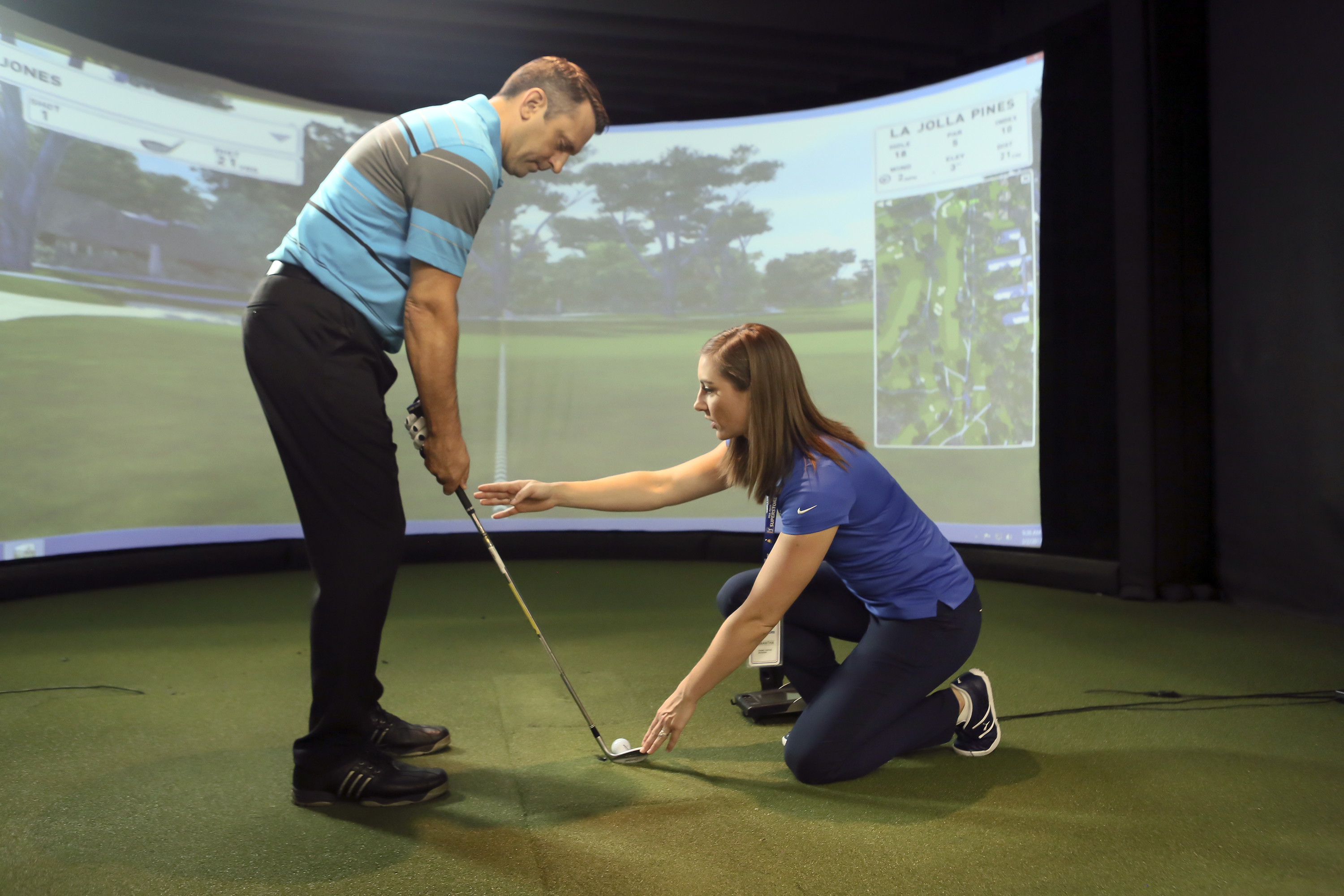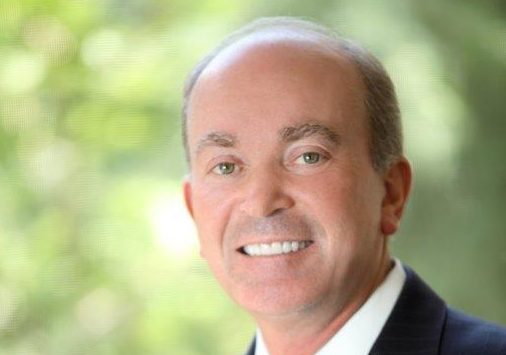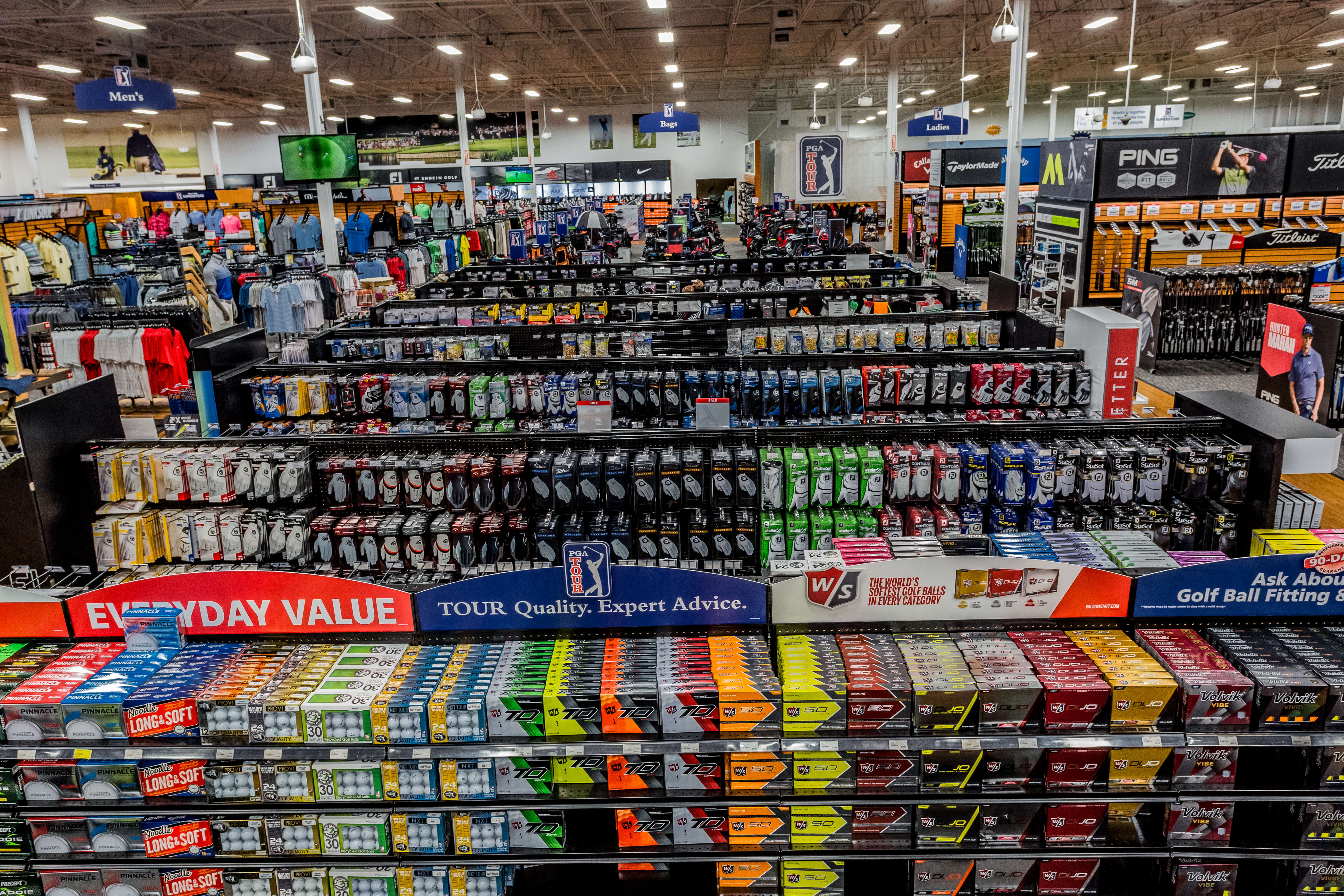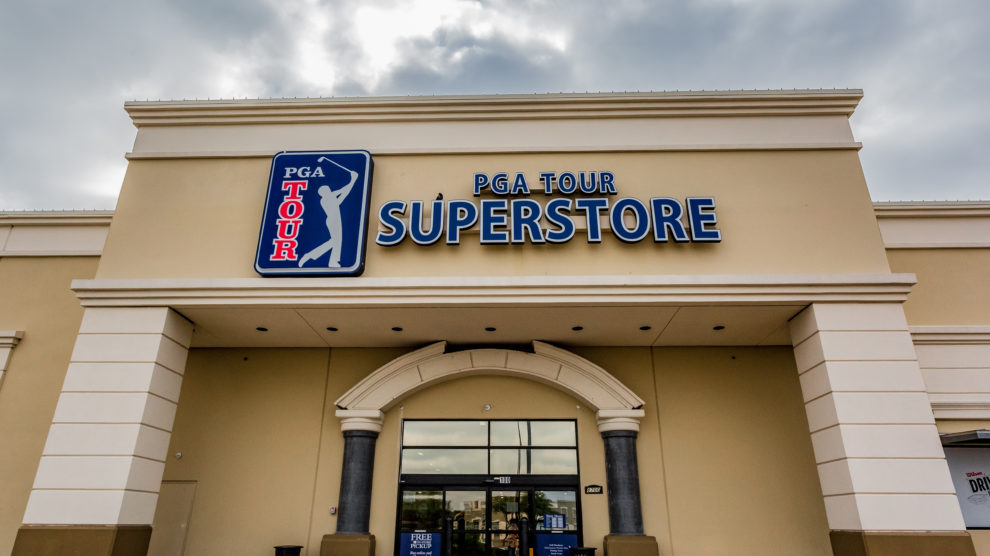ORLANDO -- Dick Sullivan is looking at his phone. As CEO of PGA Tour Superstore, he senses an opportunity.
Just before we start talking in a pop-up conference room at the PGA Merchandise Show, he mentions he's looking into the 182 Toys 'R' Us stores that will soon be closing. The debt-laden toy giant will eventually fall further, but their abdication of millions of square feet of retail space is a unique window for the burgeoning golf retailer.
"Their footprint," Sullivan says, "is almost exactly the same as ours."
In other words, many toy stores could be replacing many toy stores in the near future.
PGA Tour Superstore is bucking the apocalyptic trend in retail. Where countless mainstay brands are shuttering massive retail footprints on a daily basis, Sullivan's company is expanding with precision. He has 32 stores now, and the company's target goal is a nice, round 50 stores in the next 36 months. However, he cautions, "That means we have to open a store every two months." He knows that may be a little too aggressive, even for a growing company, in a sport that's finally starting to complete the long turn back up while operating in a retail environment where spending time touching and seeing products in person is dropping rapidly.
Most retailers fear Amazon and blame them for their woes. Why go somewhere to buy something you might not like when you can order through an app or your Echo, and it shows up in a couple of days? Sullivan doesn't, however. He knows golf, and he knows golfers are all unique. They need to be custom fit for their equipment. Not just a driver or irons, but golf balls, too. Even golf shoes. He has created a retail experience geared toward individual service and maximizing the golfer's enjoyment of the sport and performance through customization.
"We pretty much don't sell off-the-rack equipment anymore," Sullivan says.

Sullivan talks up the PGA Tour Superstore fitting experience, where customers go on a brand-agnostic journey to find the right head, shaft and grip for their clubs. Fitters use launch monitors from Foresight Sports to dial in players, and they let the data do the talking. Even the occasional pro golfer who comes in for a store appearance loves the opportunity to hit the equipment they're not contracted to play on the launch monitors and in simulator bays. It really is a democratic process to see what works best.
PGA Tour Superstore, founded by Atlanta business maven and owner of the Atlanta Falcons Arthur Blank, has invested substantial money in their own people to make sure they can speak as fluidly about the equipment they're selling as the people producing it. The company spent thousands to host an equipment summit for somewhere near 300 of the company's 1,500 associates (workers) to meet with OEMs, learn about their product and ask tough questions. These people aren't just taking money; they're passionate about the game and what they offer the consumer. Sullivan said the questions his people were asking marveled the OEM representatives.
"I was like a proud dad in the room," Sullivan says.

That knowledge comes back to the golfer on the front end of the purchasing experience. The company is looking to improve the back-end, too, bringing in handheld card readers so purchases can be completed quickly. A customer gets their receipt and a read-out of their specs, and they know what they're getting and when they'll get it.
The average golfer buys new clubs every four years, and a lot has changed about club fitting in even that time span. Go back even longer, and golfers were fit on contact boards and with tape or foot spray to indicate impact. Those golfers might think they know their specs, but they don't. And even if they did, the proliferation of component technology has given the player so much more to consider when building a new bag that Sullivan says every player should be fit, even the ones who are equipment junkies. The company fit more than 100,000 bags last year.
But if the average golfer waits a Presidential term or longer between bag overhauls, PGA Tour Superstore needs to make sure they cater to the more frequent golf purchases. Ball fitting has become a big selling point for the company, as golfers have a more diverse set of offerings than ever. There are Tour balls, soft Tour balls, spinny Tour balls, long Tour balls, lots of colors, balls for slower swingers and balls designed for female players. Odds are, Sullivan says, the ball you're playing right now isn't the right one for your game. So, going into a store, getting fit and walking out with a dozen that you know will make you better should build some loyalty. (After all, if you're just paying $16 for a sleeve of Pro V1s in a pro shop before a round, you're being robbed blind.)

However, Sullivan has wanted to create another reason to come in aside from needing a quick dozen, or a new shirt or some tees. He believes they may have found an answer in simulator leagues. After a successful -- and appropriately placed -- trial run in Minnesota, the company has rolled out simulator leagues to all of its stores this year. Leagues typically run six weeks, though sometimes longer, and cost $20 or so per week. There are prizes for tournament and contest winners, such as a closest-to-the-pin competition.
My first thought was that this is perfect for the Uber-and-a-6-pack crowd, but Sullivan quickly dispelled that myth. He said they tested some leagues with adult beverages, but they quickly found out people wanted to bring their children and have fun with them. They didn't need the booze.
As simulators evolve by the month and offer more realistic golf experiences while providing all of the numbers a fitter and an equipment geek would love, these leagues could be a staple for the company. Just spitballing here, but they could have nights where golfers preview new equipment for the events, or they could be guinea pigs for new balls or simulator courses and features. Not only is it a chance to get in some post-work golf with the fam, but it could be a way of staying connected to the latest in equipment.
Sullivan wants PGA Tour Superstore to appeal to golfers and their families in the same way another Blank creation, The Home Depot, does. He recalls his experience there, remembering specifically classes they held to teach kids to build bird houses. He says, "Kids told their parents they want to go to the orange store (Home Depot), not the blue store (Lowe's)," because of those experiences. He believes these aboutGolf simulator leagues could be the same thing.
Even if golf isn't as retail-proof as it might seem it is now, Sullivan has a wealth of resources above and below him to help steer his ship. Blank, Sullivan says, "is like having Bill Gates running a software company, on your team," and he has scores of people with retail and department-store backgrounds among his upper ranks. These people have seen the good, bad and ugly of consumerism and how businesses must acclimate to the consumer's needs.
However, with more variety than ever in equipment and gear, the golfer needs professionals to guide them to make the right choices to help them enjoy the game more. Sullivan and his team are confident they are doing just that.

